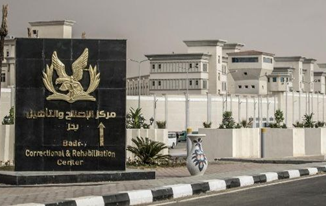
A human rights organization says in an analysis that Egypt’s National Strategy for Human Rights is just a ruse to show international community and donor states that political reform is underway
The Cairo Institute for Human Rights Studies (CIHRS) has published an analysis of Egypt’s National Strategy for Human Rights, concluding that the strategy is “rooted in the denial of the depths of Egypt’s human rights crisis”.
Meanwhile, the CIHRS concluded, the Egyptian strategy is “aiming to deceptively convey to the international community and donor states that political reform in Egypt is proceeding apace, thereby entrenching the tragic state of affairs and deflecting international criticism.”
As evidence of the strategy’s propaganda purpose, CIHRS points to the fact that it was drafted by a committee within the Ministry of Foreign Affairs dedicated to countering international criticism, as opposed to any domestically oriented body.
In addition, the first public announcement of the strategy came from the Egyptian embassy in Washington—in a tweet quickly deleted after a wave of criticism—while the first public discussions of it after publication occurred in the United States, rather than with Egyptian civil society.
In terms of substance, CIHRS notes that the strategy “does not pledge to put an end to the regime’s daily acts of repression that violate Egypt’s constitution, law, and regulations together with violating Egypt’s international obligations.”
Instead, the strategy blames the country’s dire human rights record on the “cultural and societal weaknesses and shortcomings of the people” and repeatedly recommends “raising the awareness” of citizens.
CIHRS concludes, “If the absence of political will explains the appalling and continually deteriorating human rights situation in Egypt, the so-called National Strategy for Human Rights is itself the latest official indicator of this absence of will.”
On November 14, the Arabic Network for Human Rights Information (ANHRI) also released a report detailing how Egyptian airports have been turned into “a trap for critics and opponents,” effectively breaching Egyptians’ constitutional right to freedom of movement.
The rights organization identified some of the types of arbitrary “traps” that human rights advocates, researchers, and journalists—both Egyptian and foreign—face at Egyptian airports on a regular basis: being prevented from leaving the country, being prevented from entering it, or being detained for hours while attempting to enter or leave.
In the most heinous cases, activists are arrested and sometimes forcibly disappeared. Among the many instances documented, the report cites the cases of lawyer Ibrahim Metwally, who was forcibly disappeared while on his way to a session of the UN Working Group on Enforced Disappearances, as well as those of researchers Ahmed Samir Santawy and Patrick George Zaki, both of whom were detained while visiting their home country from abroad.
Many travelers arrive at the airport only to find out that their names have been added to one of the state’s multiple travel ban lists. They are then stopped and questioned for hours without ever learning the reason or legal basis behind the ban.
ANHRI demanded that such individuals be given “the opportunity to challenge travel ban decisions in a fair judicial manner.”
The case of the Center for Egyptian Women’s Legal Assistance’s founder, Azza Soliman, who was exonerated from Case 173/2011 in August but has yet to succeed in having the associated travel ban against her lifted, demonstrates the difficulties involved.



